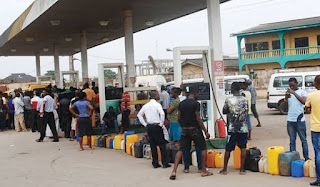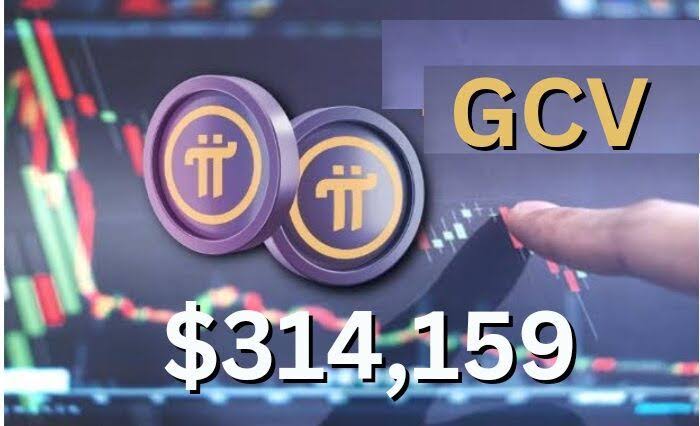 |
| Petrol black marketers queued up at a fuel station. Photo Credit: BUSINESS INSIDER |
A statement by the regulatory authority specified that the current shortage of fuel is due to the discovery of 100 million litres of imported petrol in the chain with “methanol quantities above Nigeria’s specifications” to an emergency withdrawal of unnamed volumes of the product.
It is no longer news that the Nigerian economy is being faced with a monster called “fuel scarcity” currently affecting all facets of socio-economic life of Nigerians. The discovery and emergency withdrawal of methanol-based imported petroleum product has not only added to the already existing hardship of Nigerians but has put many out of business, thereby crippling the political, social and economic well-being of many.
It is evident as many vehicle owners spend hours tortuously on queues to get the product. As a matter of fact, others resort to patronizing black marketers. In Abuja, a litre is between 400-450, in Plateau, most filling stations are under lock and key. In Lagos the story is not different.
Some small businesses which depends on petrol are either forced to close down or hike prices of commodities or services. Market women are not left out as they pay high transportation cost to convey their products to the market. This worrying situation has left them with no choice than to trigger or increase prices of goods, in which case an average Nigerian is made to bear the blunts of the extended effect. This has reduced the country’s economic growth rate, ushering in inflation.
READ ALSO: Naira devaluation poses more economic danger to Nigeria; FG can’t afford currency devaluation again
This fuel scarcity has caused untold hardship to the generality of Nigerians especially, the poor in the rural communities. This could be felt in the area of increased suffering, closure of petty businesses, low mobility, low standard of living occasioned by high cost of goods, increased poverty level thus, leaving them in penury.
Despite the assurances by Garba Deen Muhammad, the group general manager, group public affairs division of the NNPC LTD that petroleum product has been distributed nation wide to resolve the fuel scarcity that has lingered for weeks, yet nothing has been done.
More worrisome is that who are responsible for this damage and what is the government doing to punish the offenders? Who failed to conduct the scrutiny test and why? All these questions are begging for answer and Nigerians who really waiting to see the offenders being punished.














